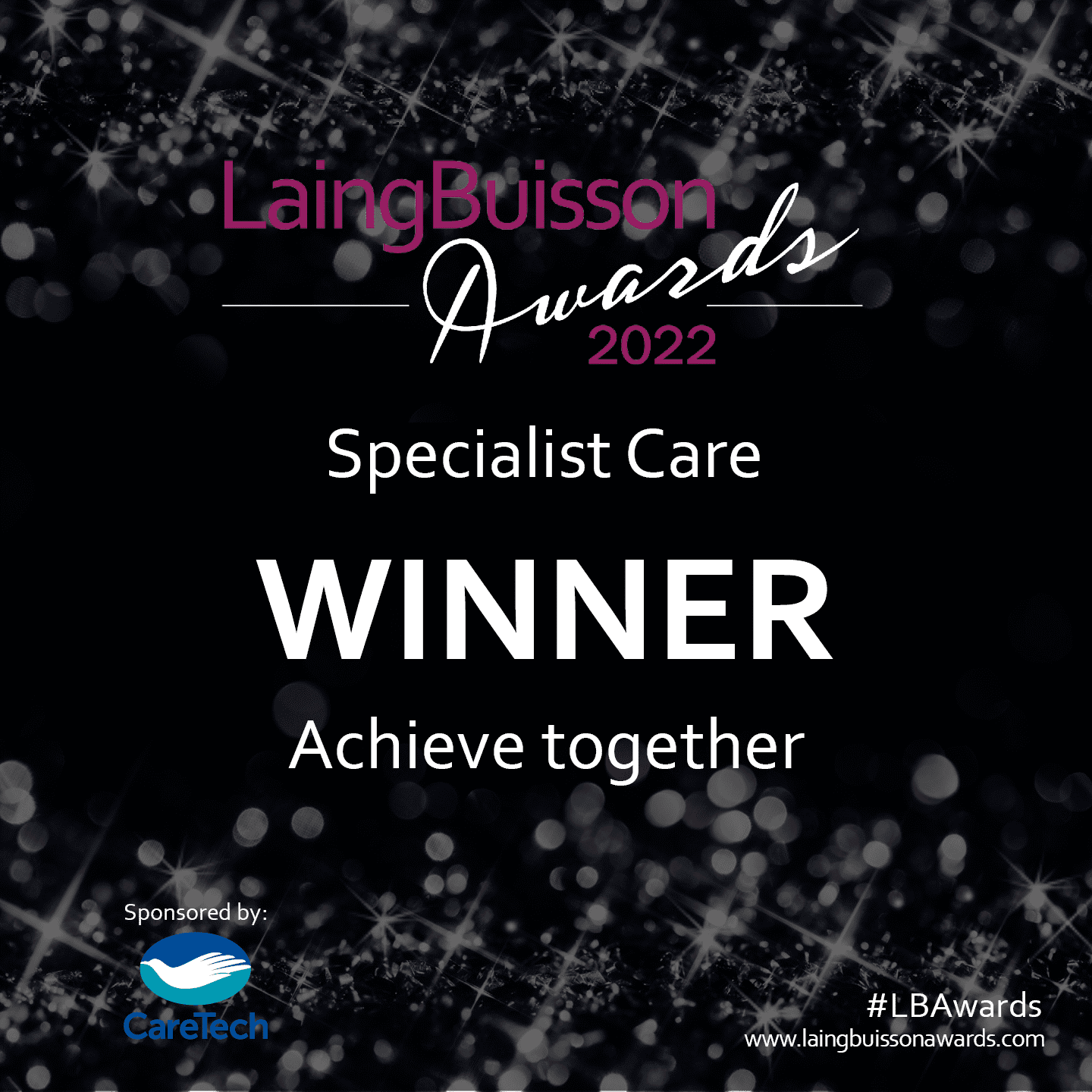Hi everyone,
Last week was Suicide Prevention Week and there has been some wonderful work done from our teams at Achieve together to help raise awareness for this. You can find more information here
Nola O’Connor, who is the Mental Health Forensic Lead & a Positive Behaviour Support Practitioner for Achieve together has kindly put together a blog on suicide prevention. She has a wealth of mental health knowledge and experience.
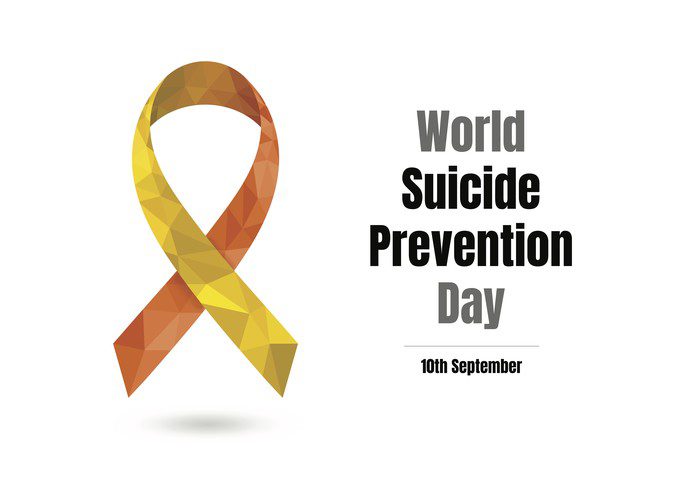
Conversations save lives
Getting Started
Like many, I bought a bike as we entered Lockdown. However, as an internet purchase, it was a bit of a fail. After a few days, I realised it hadn’t been put together properly. You would think my brake being the wrong way around and the constant a rattling sound would be a giveaway but it did take me a while and trip to the bike shop to work that out. It is surprising, then, that I was able to cycle across Sussex.
The idea of the cycle challenge came in response to the International Association for Suicide Prevention (IASP), who set the challenge to cycle around the globe. Whilst I wasn’t sure my bike would take me around the globe, I did want to make an effort to do something and I thought it would be good for those holding a clinical position to really get on board. Luckily, many of us live in and around Sussex.
The idea of undertaking some kind of exercise seemed very fitting, given the tremendous impact physical activity can have on our mental wellbeing, and that can be any kind of physical activity. It is not just the release of mood-lifting hormones and endorphins, it’s the sense of achievement gained from reaching a target or a goal. I definitely felt pleased with myself as I approached Brighton on my way back home, even better that it was something we had accomplished together. But, exercise is also something that is so easy to implement, it is something that can be achieved by all, even amid a pandemic, we can still undertake regular exercise.
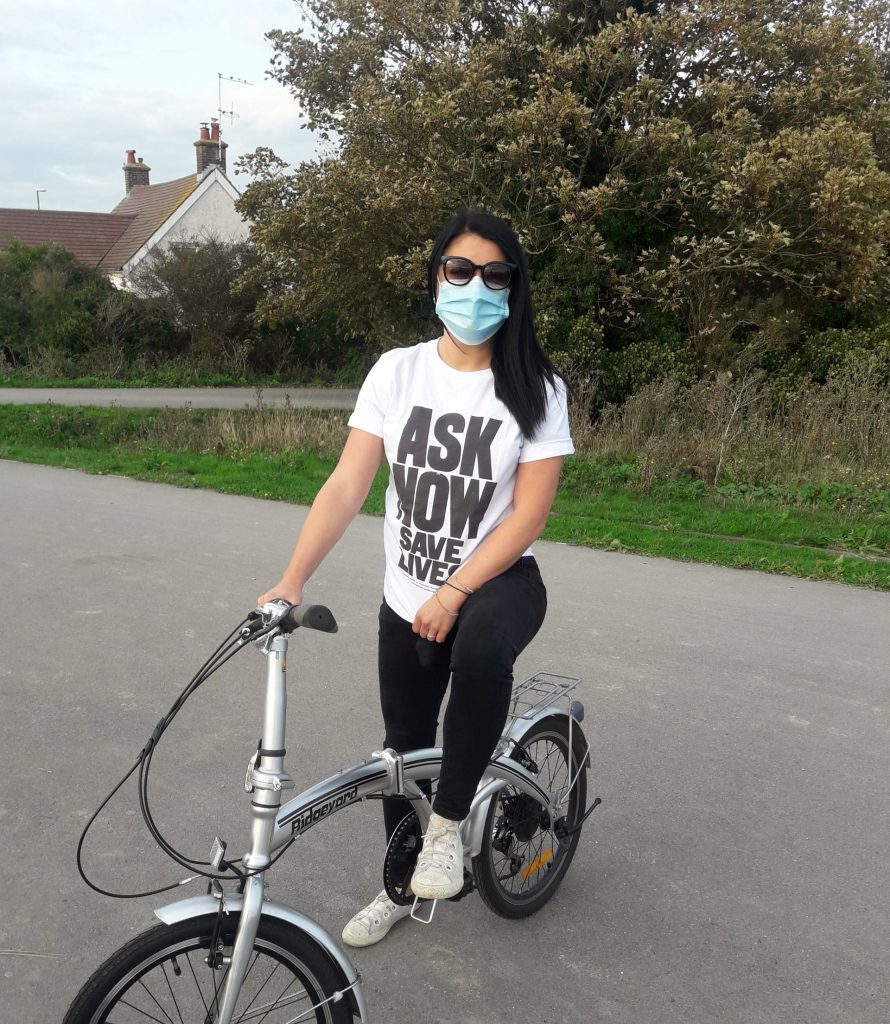
Talking About Suicide
Last year alone, two people within my world were lost to suicide. Two very different people, at different ages and from very different walks of life but both uniquely amazing and a tragic loss to many. Perhaps this is testament to how suicide doesn’t strike one group or type of people. It can happen across all ages, irrespective of a person’s occupation or position in society.
There are those that might be greatly afflicted by their emotions, such as people with Emotionally Unstable Personality Disorder. For these people, regulating strong, overwhelming emotions can be an enduring pattern throughout their lives.
Life is so, so precious. At times of hardship, it can be difficult for some people to see that. They can only see their current situation and how they currently feel. As such, it is up to us to help people recognise how precious they are. And we are capable of that. We’ve all got it in us to make a difference and be there for those that are suffering.
I think a lot of people are fearful about suicide and how to respond to it. And it is frightening: the result could be a life lost. There’s nothing more final than that. However, we shouldn’t minimise the impact we can make supporting a person past how they feel.
Just because suicide is something that you might not have experienced or thought of, doesn’t mean it is something abhorrent. People at every juncture in life are susceptible to experiencing a decline in their mental health. It may be momentary, however for some, it might be more persistent. And that can be hard. Suicide isn’t a sign of weakness. How people feel can be enormous and it can take a lot of strength for some people just to get through each day
We’ve all experienced losses of some kind, many of us know what it feels like to be bereft, we’ve had relationships break down, we’ve been fearful, a pandemic being a good example. Many of us have experienced anxiety and been left feeling depressed for many, many different reasons. We’ve all experienced human emotion and we can all relate to how overwhelming that can feel at times.
Thoughts of suicide or thoughts that a person can’t manage or cope with how they feel are common. It is entirely understandable that a person just wants to stop feeling hurt or pain. We take paracetamol if we have a headache because we want the headache to go away. It’s normal to not want to be in pain. And like a headache, the pain of how someone thinks and feels will pass, sometimes people just need a little help to recognise that.
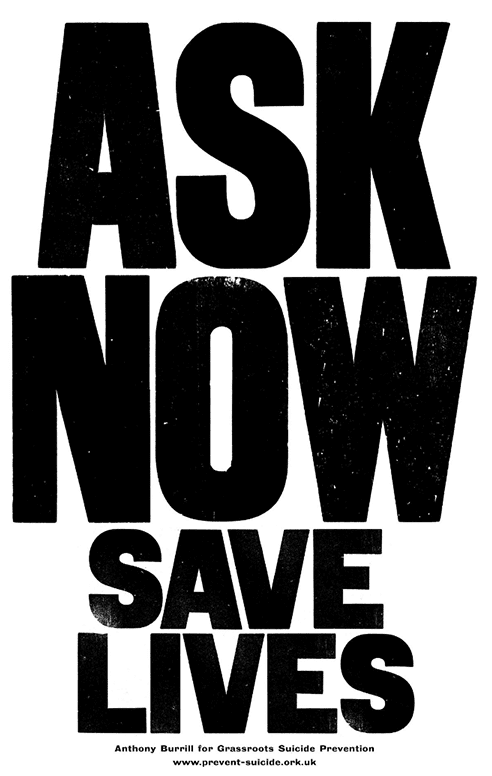
Conversations Save Lives
One in five people thinks about suicide in their lifetime – one in fifteen attempts doing so. Those are hefty figures. But there is hope. You can help save lives by talking openly and honestly about suicide. Together, we can help prevent suicide – we just have to ASK.
Conversations save lives, and when you ask someone about suicide, you show that you care. You give them an opportunity to talk openly and start turning towards safety.
If you are worried that someone is feeling suicidal, ASK – “are you thinking about suicide?”
If you need help and are feeling low or experiencing thoughts of suicide, ASK – “I’m really struggling at the moment – can you help me?”
We all need to start talking more, stop making assumptions or being judgemental. Talking openly about suicide prevents suicide. We need to talk and we need to ASK.
This year, Grassroots launched a campaign of ASK NOW, SAVE LIVES
Grassroots is a small, Brighton based charity with a simple but powerful goal: that no one should have to contemplate suicide alone.
At the core of Grassroots is a belief that:
- We believe we can all make a difference
- Recovery from suicidal thoughts and suicidal behaviours is possible
- Suicide can be prevented through open and direct conversations
- Conversations save lives
The charity work locally and nationally with communities, organisations and individuals, helping them to become ready, willing and able to effectively support someone at risk of suicide.
Their training, signposting, and innovation help save lives and enable the kind of conversations that can really make a difference.
https://www.prevent-suicide.org.uk/support-us/asknowsavelives/
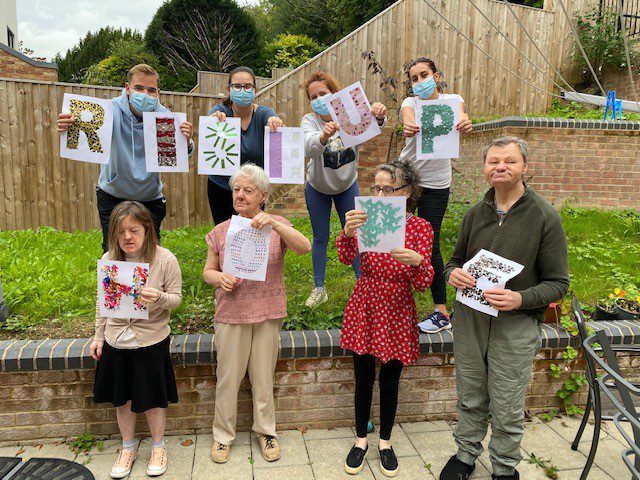
I would like to thank Nola for contributing to the blog, it was very inspirational.
Should anyone wish to contribute and share their personal experiences of mental health, I would be really pleased to hear from you. The more we encourage people to open up and share their stories about mental health, the better.
We are now running a Mental Health Special Interest Group, and the first meeting will be on the 10th November 10-12.30 via Microsoft Teams. The links will be sent out nearer the time.
If you wish to contribute to future blogs or have any questions relating to the Mental Health Special Interest Group please contact me at shirley.allmark@achievetogether.co.uk
Stay safe and speak soon,
Shirl

